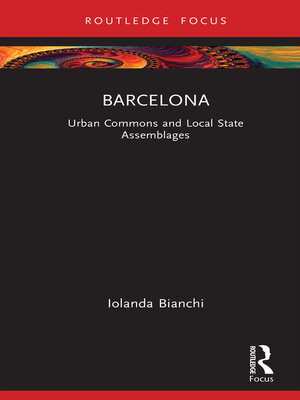Barcelona
ebook ∣ Urban Commons and Local State Assemblages · Built Environment City Studies
By Iolanda Bianchi

Sign up to save your library
With an OverDrive account, you can save your favorite libraries for at-a-glance information about availability. Find out more about OverDrive accounts.
Find this title in Libby, the library reading app by OverDrive.



Search for a digital library with this title
Title found at these libraries:
| Library Name | Distance |
|---|---|
| Loading... |
This book explores the complex relationship between urban commons – understood as a repertoire of collective action that fosters a politics of antagonism – and the local state. It critiques the dominant neo-institutionalist and neo-Marxist perspectives for their deterministic and siloed views, as well as the insufficient attention they pay to the municipal scale. The book proposes a more nuanced, urban-based, outcome-oriented approach rooted in assemblage theory.
The analysis addresses a central question: can urban commons-local state assemblages benefit the politics of urban commons? The book argues that they can, provided they form rhizomatic assemblages. These allow urban commons to retain their self-governing autonomy, even as they lose some of their material autonomy. Conversely, it shows that assemblages can also take arborescent forms, allowing the local state to undermine the self-governing autonomy of the urban commons.
Focusing on Barcelona, the book examines how rhizomatic and arborescent assemblages are constructed, as well as the strategies that urban commons can undertake to build rhizomatic assemblages. This book is essential for scholars, policymakers, and activists interested in urban governance, commons theory and transformative politics. It provides both theoretical insights and practical tools for harnessing the dynamics of the urban commons and the local state to drive meaningful socio-political change.







